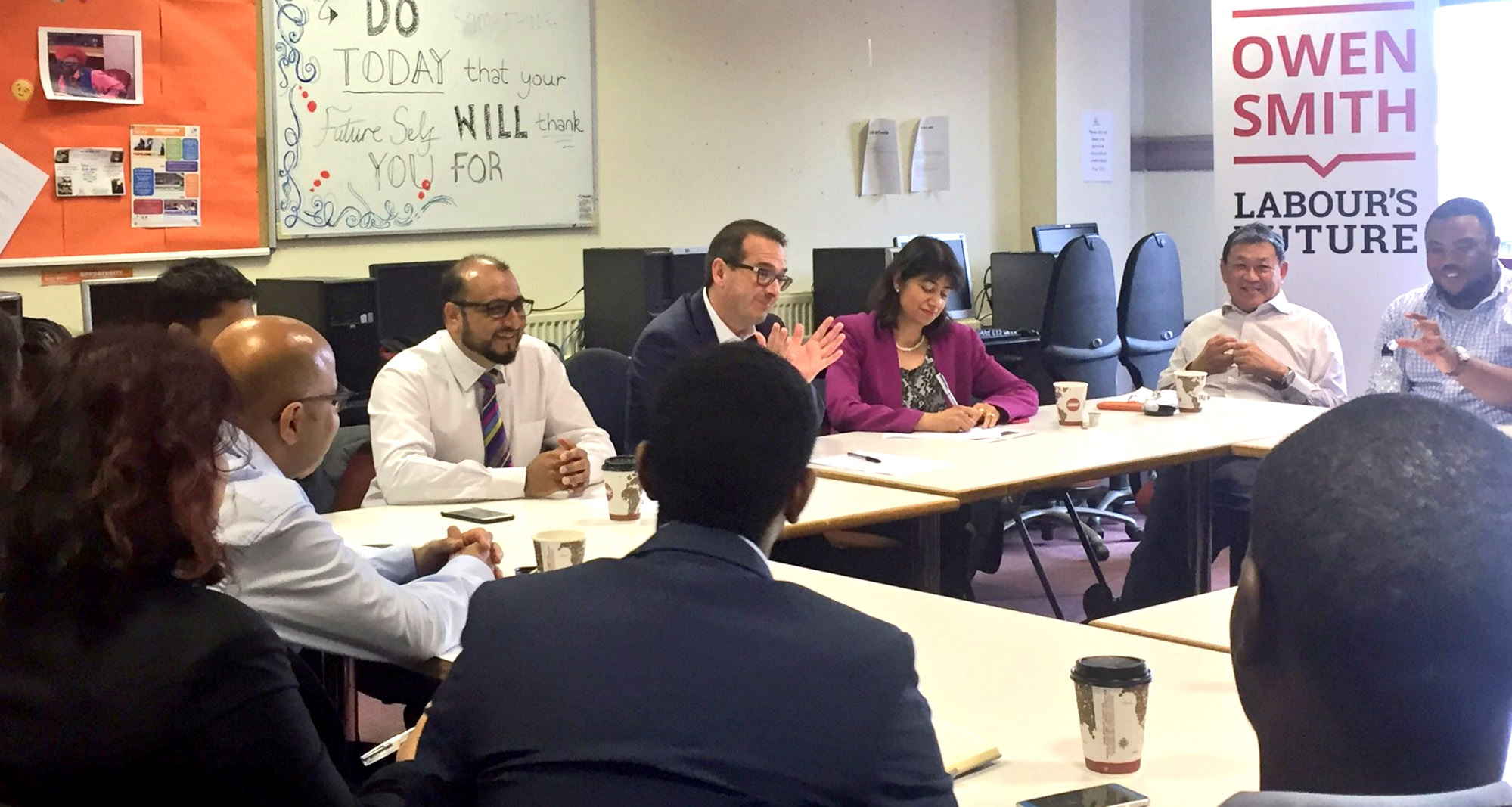Whilst attending a meeting with Owen Smith recently, the topic being discussed was BAME, which I found both fascinating, and relevant to me.
BAME stands for Black, Asian and Minority Ethnic.
As someone who is British born from an Asian background, second generation with two children born in the UK, I am concerned about being categorised by my ethnic origins. I consider myself as British first before anything else. I love my country, my nation and my religion. I don’t wish to be categorised in any other way. Whilst I know the argument for doing so, is to prevent ethnic biases in society, I don’t think it is helpful; it accentuates differences, and drives an ethnic wedge between us. White people don’t usually get described as white people, as much as I get described as Asian, so why should I have to be labelled?
I was born in the UK, educated here, I have always been British, and have only ever had a British passport. I don’t come from Asia, and I’ve never lived there, and don’t feel I belong there. People whose parents were immigrants from other European countries, don’t get labelled according to where their family origins are from, so why should I?
I was born in the UK, educated here, I have always been British, and have only ever had a British passport. I don’t come from Asia, and I’ve never lived there, and don’t feel I belong there. People whose parents were immigrants from other European countries, don’t get labelled according to where their family origins are from, so why should I?

I suggest we forget BAME, and adopt BAU (Business as usual), reflecting everyone as individuals, regardless of ethnic origin. I do appreciate before this can happen, a lot work need to happen in peoples attitude and commitment to one another.
I don’t deny there is some racial prejudice, but I wonder how much the race inequality issue is blown out of proportion? Do we, whose parents came from different places around the world, carry a chip on our shoulders? How much do BAME feel victimised?
Are some BAME not putting themselves forward for top jobs and opportunities, simply because they think their race will prevent them from succeeding? Is their own lack of motivation or limiting self-belief stopping them taking the opportunities that are out there? I think we need to have an open dialogue.
When you hear statistics like BAME Graduates are 2.5 times more likely to be unemployed compared to their white counterparts, and get less pay, and only temporary work, I do get concerned. Britain needs everyone to fulfil their potential, but we need to ensure merit comes first.
Personally, I’ve never felt discriminated against because of my ethnic origins, and I have to say that I only became aware of BAME later in life when I met people who said they have experienced racial inequality.
I wonder if it had something to do with the fact that as a young person I grew up in the AMYA, (Ahmadiyya Muslim Youth Association) in the UK. It is an organisation committed to the spiritual, moral, social, intellectual and physical development of young Muslims, and runs regular programmes of structured activities, with a mix of academic, sporting, social welfare and charitable works, which keep its members engaged. One of AMYA’s key objectives, is to serve and contribute to society at all levels, through active integration and engagement. The purpose of all these activities is to engender the spirit of discipline and service to the wider community, irrespective of people’s beliefs, race, or gender. Its motto ‘Love for All, Hatred for None’ is the ethos that underpins the organisation. I believe that, due to the outreach community work I did, I developed positive self-esteem, a feeling of Britishness, and strong sense that the colour of my skin didn’t make me any different to anyone else. I feel certain that this is why I have never ever felt discriminated against.
I know many people have very strong beliefs concerning BAME in every context, I hope that my thoughts, even though I know will be seen as controversial by some, can at least add to the debate. If we are not prepared to see all sides, and consider all views, how can we ever hope to solve problems and issues?
DAVID Isaac, chairperson Equality of and Human Rights Commission, has talked of the dangers of attempting positive discrimination. He also spoke about the benefits of blind job applications, which make it very difficult for employers to show bias. What particularly resonated with me, was the idea that the Care Quality Commission could bring about positive change through training, education and confidence building.
Bonnie Greer, writer, broadcaster and chancellor of Kingston University, said that BAME people in the UK have a younger age mix than the white population, and that the entrepreneurial drive and business acumen of many BAME, could be highly beneficial in years to come, where the young are going to be burdened with having to support and aging population. BAME people starting and running businesses, create jobs, drive the GDP and provide vital tax revenue. I remain full of hope for BAME in the future, and I hope that it is sooner rather than later that we can stop using the term and see everyone as equal regardless of their racial and ethnic heritage.

